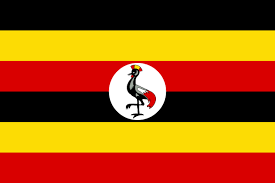Quick facts about Uganda
Quick facts about Uganda, Uganda is sometimes referred to a s a” pearl of Africa” name by Winston Churchill ,Uganda is called the Pearl of Africa when Winston talked of the magnificence, color, life, birds, reptiles, insects, beasts, mammals, and vegetation not only that but it’s one of the country with a rich cultural heritage and diverse natural resources.
Certainly! check below some quick facts about Uganda:
Location:
Uganda is a landlocked country in East Africa, bordered by South Sudan to the north, Kenya to the east, Tanzania and Rwanda to the south, and the Democratic Republic of the Congo to the west.
Capital:
Kampala is the capital and largest city of Uganda.
Population:
As of my last update in 2022, Uganda had a population of approximately 47 million people.
Languages:
English is the official language of Uganda, while Swahili is also widely spoken. Several indigenous languages are spoken across the country, including Luganda, Runyankole, and others.
Currency:
The currency used in Uganda is the Ugandan shilling (UGX).
Government:
Uganda has a presidential system of government, with a president as the head of state and government.
Economy:
The Ugandan economy is primarily based on agriculture, with coffee being the country’s most significant export. Other important agricultural products include tea, cotton, and tobacco. The country has also been making efforts to develop its oil industry in recent years.
Wildlife and Nature:
Uganda is known for its diverse wildlife and natural attractions, including the famous Bwindi Impenetrable National Park, home to nearly half of the world’s mountain gorilla population. The country also boasts several other national parks and reserves, offering opportunities for safaris and ecotourism.
History:
Uganda gained independence from British colonial rule in 1962. Its history has been marked by political turmoil and periods of instability, including the rule of Idi Amin in the 1970s and the civil war under the leadership of Yoweri Museveni, who has been the president of Uganda since 1986.
Culture:
Ugandan culture is diverse, with various ethnic groups each contributing to the country’s rich cultural heritage. Traditional music, dance, and art play an essential role in Ugandan society, with influences from various regions and ethnicities.
Geography:
 Uganda is a land of diverse landscapes, including the fertile plateau in the south, the semi-arid region in the northeast, and the dense equatorial forests in the central region. It is also home to part of Lake Victoria, the largest lake in Africa and the second-largest freshwater lake in the world.
Uganda is a land of diverse landscapes, including the fertile plateau in the south, the semi-arid region in the northeast, and the dense equatorial forests in the central region. It is also home to part of Lake Victoria, the largest lake in Africa and the second-largest freshwater lake in the world.
Religion:
The majority of Ugandans are Christian, with a significant portion of the population adhering to Roman Catholicism and Anglicanism. There is also a substantial Muslim minority, as well as a small percentage of people following traditional African religions.
Education:
Uganda has made significant strides in improving its education system, with a focus on increasing access to primary and secondary education. However, challenges such as limited resources and infrastructure persist, particularly in rural areas.
Healthcare:
The healthcare system in Uganda faces various challenges, including a shortage of medical personnel, inadequate infrastructure, and limited access to healthcare services in rural areas. Infectious diseases such as malaria, HIV/AIDS, and tuberculosis remain significant health concerns in the country.
Human Rights:
Uganda has faced criticism for issues related to human rights, including restrictions on freedom of speech and assembly, as well as concerns regarding the treatment of political opposition and marginalized groups.
Economic Development:
While Uganda has experienced economic growth in recent years, poverty remains a significant issue, particularly in rural areas. Efforts to improve infrastructure, promote investment, and enhance agricultural productivity continue to be key priorities for the government.
 Tourism:
Tourism:
Uganda has been increasingly recognized as a prime tourist destination in East Africa, offering opportunities for wildlife safaris, gorilla trekking, and birdwatching. Tourists also visit the country for its beautiful landscapes, including the Rwenzori Mountains, the source of the Nile River, and the Ssese Islands in Lake Victoria.
Cuisine:
Ugandan cuisine is diverse and is influenced by various regions and ethnic groups. Common dishes include matoke (plantains), groundnut stew, luwombo (stewed meat or chicken wrapped in banana leaves), and various types of starchy staples such as posho (maize meal) and millet.
Climate:
Uganda has a tropical climate, with temperatures generally ranging from 25 to 29 degrees Celsius (77 to 84 degrees Fahrenheit) throughout the year. The country experiences two dry seasons (from December to February and from June to August) and two wet seasons (from March to May and from September to November).
Music and Dance:
Traditional Ugandan music and dance play a vital role in the country’s cultural expression. Different ethnic groups have their own unique musical styles and instruments, such as drums, harps, flutes, and xylophones. Traditional dances often accompany ceremonies and celebrations, showcasing vibrant costumes and rhythmic movements.
Education System:
The Ugandan education system comprises seven years of primary education, six years of secondary education, and higher education provided by various universities and colleges. Efforts have been made to increase access to education, but challenges such as a lack of resources and infrastructure persist.
Literacy:
Uganda has made progress in improving literacy rates, with efforts to promote education and literacy programs throughout the country. However, disparities in literacy rates still exist between urban and rural areas, as well as between different regions,Quick facts about Uganda.
Languages:
While English is the official language, Luganda is the most widely spoken indigenous language in Uganda. Other major languages include Swahili, Runyankole, Rukiga, and Luo, among others.
You Can Book or Inquire Any of Our safari Now & Save Up To 10%
Are you interested in any of our safaris? or you would like to find more detailed information about our tours and safaris? please Let us know your travel needs by filling the form below and we will send you all the necessary information about this trip including quotes, availability regarding the number of people on this trip.We can’t wait to organize your ground handling service via our company MUM AND DAD UGANDA TOURS.
✓ No Hidden Costs | ✓ 24/7 Support
